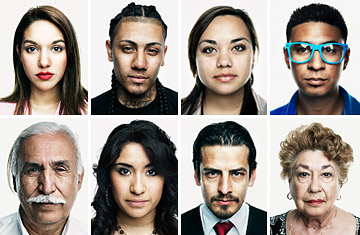
(6 of 6)
A few years ago, she had to shut down her children's ministry, which operated 14 school buses for transporting hundreds of poor children, many of them undocumented, to local high schools for hot meals on weekends. A new state law supported by Republican leaders had made it a felony to transport 10 or more undocumented residents at a time. She says she has seen sheriff's deputies park across the street from her bilingual church during Sunday services as an act of intimidation against undocumented attendees. "It hurts to be clergy in Arizona," she says. "It hurts to be a good Samaritan."
On a Saturday night in February, Nuez appeared before a group of about 100 local clergy for the Latino community. "A majority of them were Republican, very conservative, and I said, 'By a lift of your hands, if you had Obama or Romney, who would you choose?' " she recalled. "90% raised their hand and said they would vote for Obama." This is almost an exact reversal of the vision Bush had for the Republican Party when he ran for re-election in 2004. "We really look like Republicans on paper, but they don't want us," says the Rev. Samuel Rodriguez, president of the National Hispanic Christian Leadership Conference, which has embarked on its own voter-registration drive in Evangelical churches around the country. "The Democrats don't look like us on paper, but they really want us."
In Nuez's neighborhood, party doesn't matter. In 2011 she organized phone banks for Valenzuela, whom she knew from church. She said the local Republicans were upset when they found out she was using their voting lists to push an independent candidate for the city council. But she saw in Valenzuela a chance to finally activate the Latino vote in Arizona.
That is well under way. On the ground in Phoenix, there are more than a half-dozen organizations working to register Latinos for the coming election. Citizenship workshops designed to help people become naturalized saw a fivefold increase in attendance after the previous round of anti-immigration laws in 2010. "That kind of empowerment can be permanent," says Valenzuela, who has continued to walk his district since his election with voter-registration forms in hand. But he knows his road is long. "We are closer," he says, "to the beginning than the end."
FOR PORTRAITS OF LATINO VOTERS, GO TO time.com/latinovote
